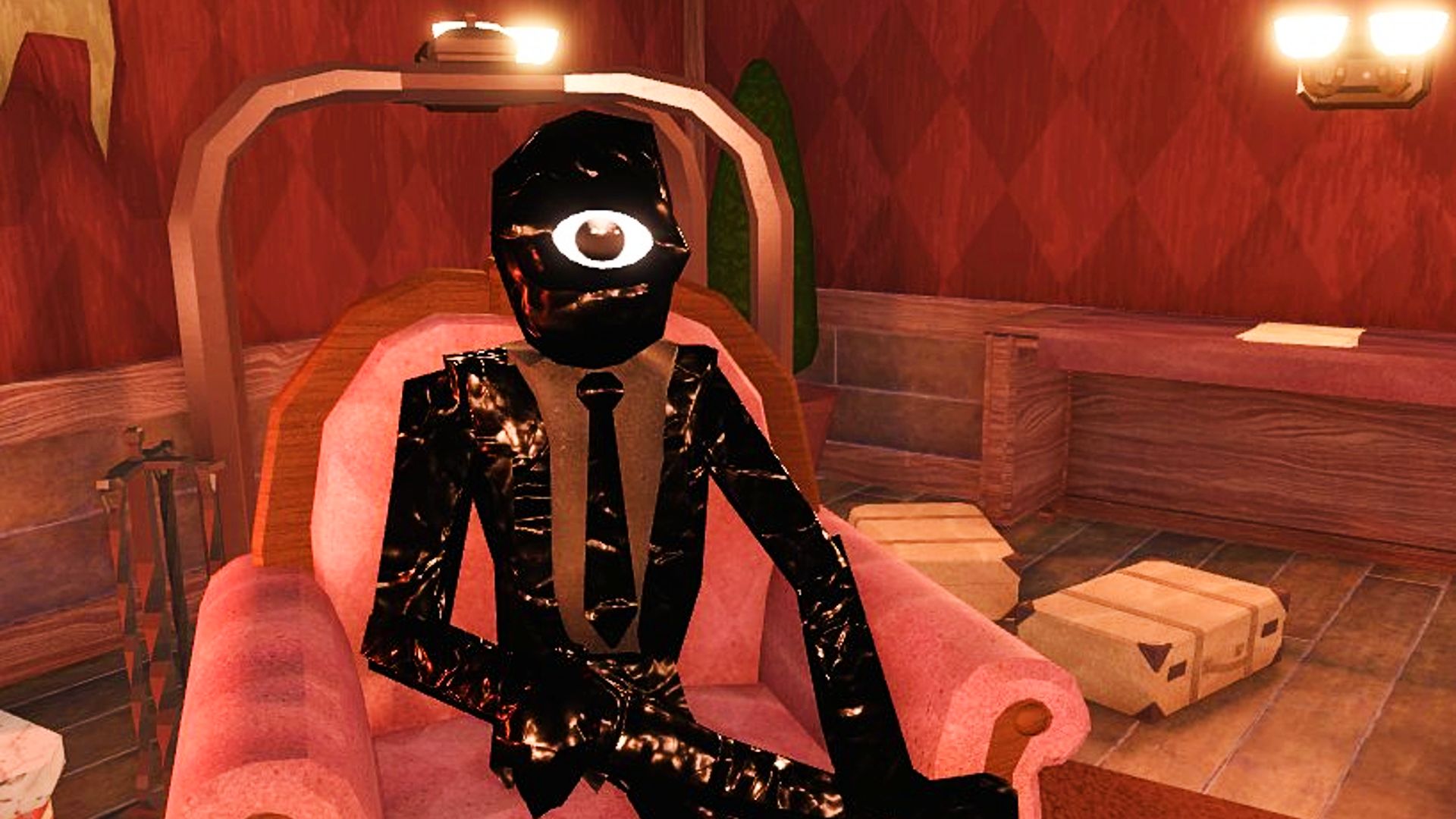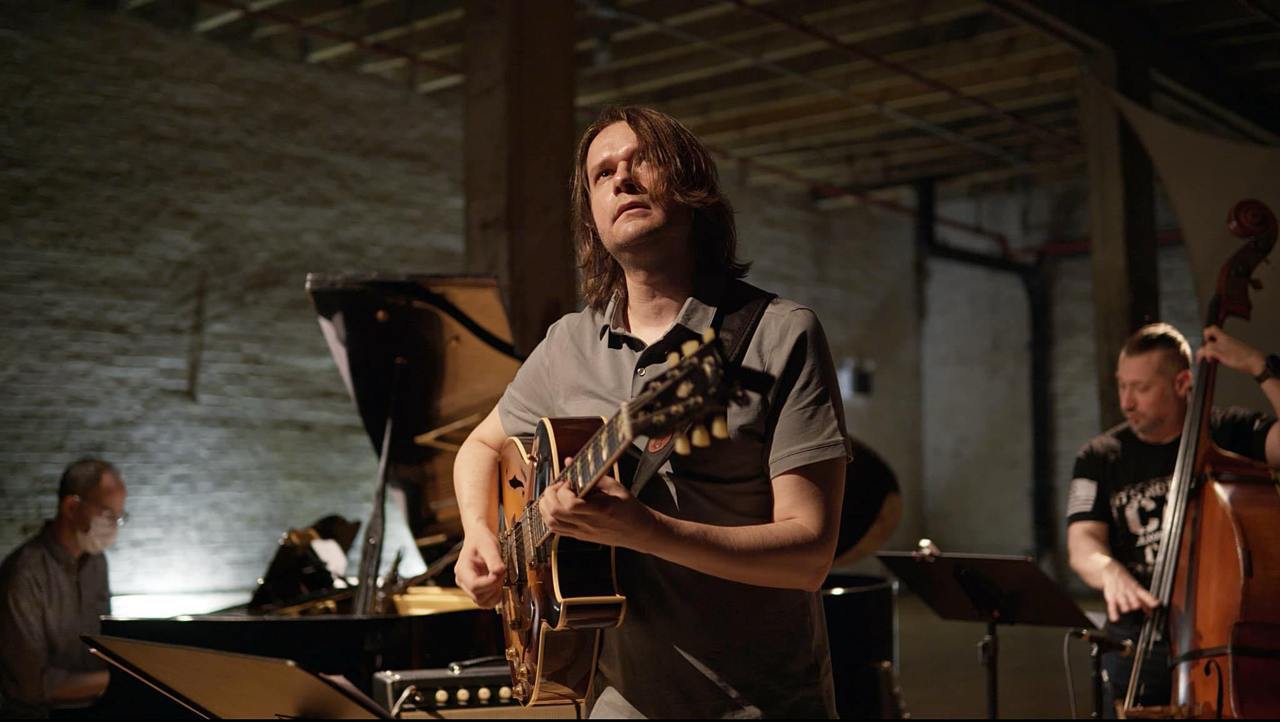Does a Magician Really Never Reveal Their Tricks? AO Wants to Know.
AO Wants to Know is an ongoing interview series where we ask experts in extraordinary subjects to share their knowledge with us. I’ve always thought of stage magic as something that happens in person, but magician Siegfried Tieber showed me that it can even be performed over Zoom. During our video call, he folded a $1 bill in his hand and a $5 bill underneath his wallet, which sat on the table in front of him. If we were in person, Tieber explained, both bills would have been in my hands. “At this point, I would ask you to hold on to these two bills for dear life,” he said. “They will never leave your sight. They are right there in front of you the whole time.” I followed Tieber’s modified instructions and did not take my eyes off the two bills. And somehow, they switched places right in front of me. Weeks later, I still have no idea how Tieber achieved what he calls his “all-time favorite sleight-of-hand illusion.” Sleight-of-hand magic tricks are performed by skillfully manipulating ordinary objects with one’s hands. “You and I know that, sadly, I don’t have real magic powers like Harry Potter,” said Tieber. “So it has to be some kind of technique and optical illusion that I’m creating. That is the essence of sleight-of-hand magic: using often simple props and creating the illusion of something impossible.” Besides sleight-of-hand, Tieber also performs mentalism, which “relies on creating the illusion of reading minds and predicting future events,” he explained. Tieber contrasts his specialties with “stage illusion,” larger-scale David Copperfield–style spectacles that may rely on trick props or hidden doors. Whatever form it takes, all magic has the goal of instilling observers with a sense of wonder. “That is where magic comes to life, when it’s performed in front of an audience,” said Tieber. Now based in Los Angeles, Tieber grew up in Ecuador and got into magic while pursuing a degree in mechanical engineering. It was the reaction of amazement when he performed his first trick for his family that made him realize magic was his true passion. After earning his degree, Tieber said, “I told my parents I wanted to do magic for a living, and since then, that’s what I’ve been doing with my life.” During his more than 20 years practicing stage magic, Tieber has performed in various different venues, including two appearances on famed magic duo Penn and Teller’s show Penn & Teller: Fool Us (he fooled the hosts once). Tieber spoke with Atlas Obscura about the special relationship between magician and audience and the real reason magicians don’t reveal their tricks. How did you first get into magic? When I was 18, someone, for no reason whatsoever, lent me a book on card tricks: 1,001 Easy Card Tricks. I read it cover to cover. One thousand out of 1,001 of those were not good. However, there was this one trick that I absolutely loved. I practiced and practiced for many weeks on end, without ever showing it to anybody. Then, one glorious Sunday afternoon, I gathered my family in the living room. At this point, I was so familiar with this one trick that it wasn’t that exciting to me anymore, right? But I showed the trick to them. They freaked out. I freaked out at their freaking out, and I was hooked. Are there programs or schools that teach stage magic? In magic, there is very, very little formal training. You learn from books and mentors, and by experience. Personally, because of my interest in magic, I did a two-year program for stage and screen acting, [to learn] how to develop a character, stand on a stage, and enunciate my words. If anything, the closest thing to formal training that you can have for magic is to train as an actor, because it gives you many of the necessary tools. The tricks and techniques you learn from a book, and then you practice a lot in front of a mirror. But learning how to communicate with an audience? That’s acting training. How do you invent your own magic tricks? Like with any other art form, there are certain fundamental techniques, and once you have learned the fundamentals, you can take those principles and create what’s yours. Sometimes you take an existing trick or illusion—something you learned from a book or a mentor—and put a spin on that. And sometimes by mere chance and serendipity, you stumble upon a principle that you might be able to use. Magic is peculiar in the sense that we magicians are very, very limited by the technical aspects, in ways that other art forms are not. If you’re a skillful writer, there’s nothing that you cannot create on paper to paint a picture in the mind. But as a magician, I can have the greatest idea ever, that might be the perfect illusion for the show that I want to create. But now, I have to figure out how to create the illusion. How often do magicians develop new acts or pick up new skills? There are absolutely some performers who develop an act and do that act for most of their career. It’s reminiscent of the early 2

AO Wants to Know is an ongoing interview series where we ask experts in extraordinary subjects to share their knowledge with us.
I’ve always thought of stage magic as something that happens in person, but magician Siegfried Tieber showed me that it can even be performed over Zoom. During our video call, he folded a $1 bill in his hand and a $5 bill underneath his wallet, which sat on the table in front of him.
If we were in person, Tieber explained, both bills would have been in my hands. “At this point, I would ask you to hold on to these two bills for dear life,” he said. “They will never leave your sight. They are right there in front of you the whole time.” I followed Tieber’s modified instructions and did not take my eyes off the two bills. And somehow, they switched places right in front of me. Weeks later, I still have no idea how Tieber achieved what he calls his “all-time favorite sleight-of-hand illusion.”
Sleight-of-hand magic tricks are performed by skillfully manipulating ordinary objects with one’s hands. “You and I know that, sadly, I don’t have real magic powers like Harry Potter,” said Tieber. “So it has to be some kind of technique and optical illusion that I’m creating. That is the essence of sleight-of-hand magic: using often simple props and creating the illusion of something impossible.” Besides sleight-of-hand, Tieber also performs mentalism, which “relies on creating the illusion of reading minds and predicting future events,” he explained. Tieber contrasts his specialties with “stage illusion,” larger-scale David Copperfield–style spectacles that may rely on trick props or hidden doors.
Whatever form it takes, all magic has the goal of instilling observers with a sense of wonder. “That is where magic comes to life, when it’s performed in front of an audience,” said Tieber. Now based in Los Angeles, Tieber grew up in Ecuador and got into magic while pursuing a degree in mechanical engineering. It was the reaction of amazement when he performed his first trick for his family that made him realize magic was his true passion. After earning his degree, Tieber said, “I told my parents I wanted to do magic for a living, and since then, that’s what I’ve been doing with my life.”
During his more than 20 years practicing stage magic, Tieber has performed in various different venues, including two appearances on famed magic duo Penn and Teller’s show Penn & Teller: Fool Us (he fooled the hosts once). Tieber spoke with Atlas Obscura about the special relationship between magician and audience and the real reason magicians don’t reveal their tricks.

How did you first get into magic?
When I was 18, someone, for no reason whatsoever, lent me a book on card tricks: 1,001 Easy Card Tricks. I read it cover to cover. One thousand out of 1,001 of those were not good. However, there was this one trick that I absolutely loved. I practiced and practiced for many weeks on end, without ever showing it to anybody.
Then, one glorious Sunday afternoon, I gathered my family in the living room. At this point, I was so familiar with this one trick that it wasn’t that exciting to me anymore, right? But I showed the trick to them. They freaked out. I freaked out at their freaking out, and I was hooked.
Are there programs or schools that teach stage magic?
In magic, there is very, very little formal training. You learn from books and mentors, and by experience. Personally, because of my interest in magic, I did a two-year program for stage and screen acting, [to learn] how to develop a character, stand on a stage, and enunciate my words.
If anything, the closest thing to formal training that you can have for magic is to train as an actor, because it gives you many of the necessary tools. The tricks and techniques you learn from a book, and then you practice a lot in front of a mirror. But learning how to communicate with an audience? That’s acting training.
How do you invent your own magic tricks?
Like with any other art form, there are certain fundamental techniques, and once you have learned the fundamentals, you can take those principles and create what’s yours. Sometimes you take an existing trick or illusion—something you learned from a book or a mentor—and put a spin on that. And sometimes by mere chance and serendipity, you stumble upon a principle that you might be able to use.
Magic is peculiar in the sense that we magicians are very, very limited by the technical aspects, in ways that other art forms are not. If you’re a skillful writer, there’s nothing that you cannot create on paper to paint a picture in the mind. But as a magician, I can have the greatest idea ever, that might be the perfect illusion for the show that I want to create. But now, I have to figure out how to create the illusion.
How often do magicians develop new acts or pick up new skills?
There are absolutely some performers who develop an act and do that act for most of their career. It’s reminiscent of the early 20th-century vaudeville shows, when people would buy a ticket to see 20 or 30 different acts in the theater, and each was just three or four minutes long. Way back then, when you were performing on the vaudeville circuits, you would put your heart and soul into developing four minutes, and you would do it over and over in different towns.
What I usually do is develop a show and play with that show for maybe four or five years. I do it a few hundred times in front of live audiences, and then I develop something new. And that’s partly because of my personality. I enjoy the process very, very much. It’s challenging, but it’s very fun.

Do you get nervous trying new tricks on a live audience for the first time?
Even after 20 years of doing this, still, the first few times, it’s nerve-wracking. Once I do something a few hundred times, I know the beats, I know what could possibly go wrong. And if something goes wrong—because in live theater, things will go wrong—I know how to fix it and take a different route. So there’s reassurance once I’m comfortable and confident in the trick. In the worst-case scenario, if the trick fails miserably, I admit defeat, [and say], “You know what? That didn’t go well. Let me show you something different.”
How much truth is there in the saying that magicians don’t reveal their secrets?
A lot of truth! Big time, big time. That’s a very, very important principle of magic. There is a well-known American magician, Jim Steinmeyer, who would say that “magicians guard an empty safe.” It’s empty because our secrets, more often than not, are confoundingly simple.
If I don’t tell you how something is done, I hope that for the next few days, maybe even weeks or months, you'll be thinking about this thing, wondering “How did he do that?” But if I tell you, [you’ll think], Oh, it’s easy!” We magicians do not reveal our secrets for the audience’s benefit, not for our own. Of course, I want to keep working, I want people to hire me. But it’s mainly for your benefit.
What was your experience like being on Penn and Teller’s show?
The first time, that was one of the most thrilling, exciting, terrifying moments of my life. Ever since I got interested in magic, Penn and Teller have been two of my heroes. So just the fact of being invited to perform on that stage was an honor.
I thought there was zero chance of me fooling them, because the trick that I did was my interpretation of a classic card magic trick. It had my spin, but it’s a classic piece of magic that I know Penn and Teller are familiar with. But maybe I was able to disguise it, and my interpretation of this piece of magic looked so different from the original that they didn’t trace the connection. [Tieber fooled Penn and Teller on his first appearance.]
So—spoiler alert—on my second appearance, I didn’t fool them. However, a few days after my episode was recorded, I get an email from Penn Jillette, and he tells me, “Hey Siegfried, so nice to have you on the show again. Thank you for coming. You know what? Since you came, Teller and I have been thinking about your trick and, if we have your blessing, we would love to do our interpretation of the trick in our live show. Would you be willing to sell us the rights to do that trick on our stage?”
And my answer was, “You’re my heroes. Do whatever the hell you want with that trick!” And I'm so glad that I did. I could have made a good chunk of change if I had sold them the rights, but I told them, “No, you don't owe me a penny. You have given me so much. It’s amazing that now I can do a little something for you.” They have been doing their interpretation of my trick in their show in Vegas for a few years now. And in my mind, that is much more exciting than a trophy.

Is that common in the field, that one magician might buy the rights or ask permission to perform another’s trick?
It does happen, in many different ways. And sadly, it also happens that a magician sees something on the stage and says, “Oh, that is a good trick, and I understand the mechanics behind it. I will do that trick on stage.” It would be like a stand-up comedian sitting in an audience, hearing a joke, and doing the same joke the next night at his gig. But most magicians are very respectful of other people’s work and intellectual property.
If I publish a book with my magic tricks, that’s implicitly giving you permission to do them, because I put my ideas in print and I sold you that for money. But [with performance], there’s a very strong unspoken code of conduct. I know that if I steal material, I’m also opening the floodgates for people to steal from me.
What advice would you give to someone who wants to learn magic?
Be curious and search. Nowadays, because we all have access to the internet, it’s much, much easier. You can learn a lot of decent magic from YouTube. And chances are, if this person is interested, they will go down the rabbit hole and discover that you can also learn magic from books. There are stores, both physical and online, that sell very specialized books that you would not find in a public library, that assume the reader has some previous knowledge and experience. And the secrets contained in those books are the good secrets—not only how the trick is done, but the psychology and philosophy of magic.
Magic, like anything worth doing in life, takes time and patience and dedication, but I deeply believe that anyone can become a magician. You don’t need talent, you don’t need long fingers or large hands; you just need to be excited about the thing! I think that magic is a very generous art form. You need to put a lot into it, but it can give you a lot back in return. In that sense, it’s a very lovely way to spend your time and focus your attention.
This interview has been edited and condensed for length and clarity.






































































